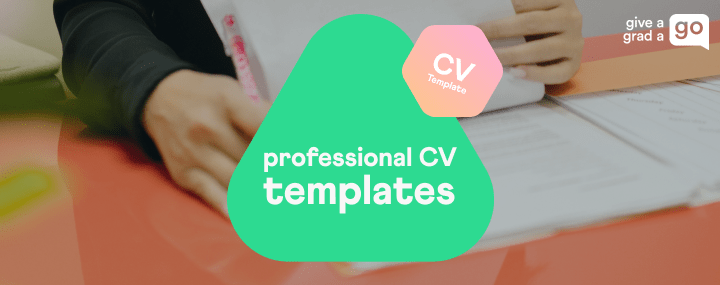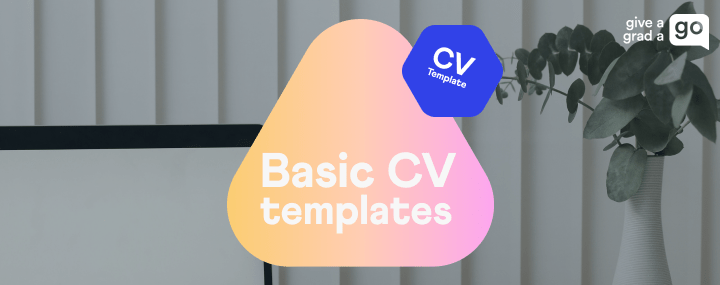Be consistent with your tone of voice
You either want to write your CV in the first or third person. Whilst both forms are acceptable, writing in the third person is generally the most recognised and accepted method and comes across as professional.
Whichever person you use, make sure you’re consistent throughout your CV. Here’s a quick refresher of how to write in each person:
When writing in the third person, you want to remove references to yourself altogether, beginning sentences with adjectives rather than first-person pronouns, for example: “A highly capable physics graduate”. Don’t refer to yourself as ‘he’ or ‘she’, although this is using the third person, it will sound odd on your CV.
When using the first person, you want to refer to yourself with the pronouns ‘I’ and ‘myself’ in your CV, for example “I looked after the short- and long-term funding requirements of business clients”.
It’s also important to write in the active voice (recruited and trained 10 staff members) rather than the passive (10 staff members were recruited and trained by myself). The active voice gives a more impactful and direct delivery.
Use grammar checking software
To ensure your CV is mistake free, use a grammar checking software – Grammarly is a great free digital writing tool that corrects spelling mistakes and makes suggestions on how you can enhance your vocabulary.
It’s important though not to rely on spell-checkers, make sure you’ve read over your finished CV a few times and if you think it’s perfect, ask a friend or family member to check.
Don’t go crazy with the thesaurus!
Whilst it’s good to use synonyms if you find yourself repeatedly using the same word, make sure you’re not getting too thesaurus happy and do this for every sentence.
Whilst you may think this will help you sound highly sophisticated, it can often lead to sentences not making grammatical sense and your CV not reading well – if you don’t know what a word means, don’t use it.
The same goes for semicolons, no one really knows how to use them, so it’s best to avoid them completely in your CV if you’re unsure.
Use dynamic verbs
Using dynamic verbs where possible on your CV helps put emphasis on your achievements and demonstrates what you will be able to achieve at their company. For example writing, ‘I was responsible for system developments’ sounds ambiguous, whereas ‘0devised and implemented new systems’ sounds more impressive and clear.






